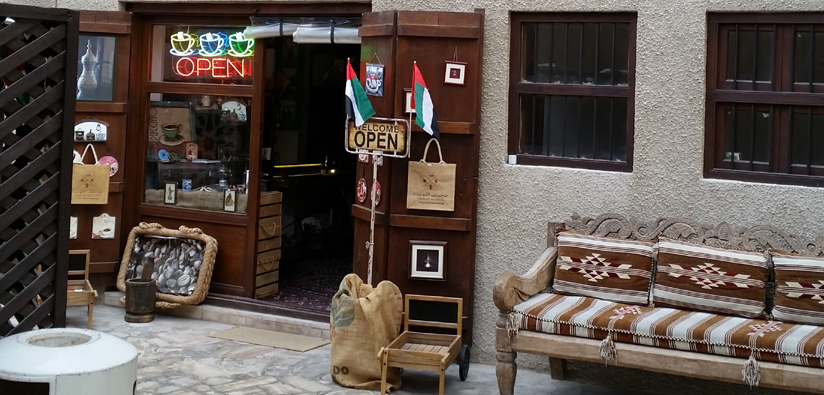In Dubai, A 150-year-old house is an opportunity to drink coffee in one of Dubai’s heritage sites at Al Fahidi. It offers information on the bean’s history and uses worldwide. The United Arab Emirates is not the conventional producer of coffee, but the Emirati’s love of beverages has made the country a tourist destination of the coffee museum. The museum is an old Emirati family home, and this calming feeling remains. It has two floors of cozy, comfortable rooms with coffee stories. It’s much more relaxed if you meet Khalid El Mulla, the founding owner. If you book an exclusive Dubai city tour, the guide will take you to all the historical sites.
Coffee Museum Dubai is a paradise for coffee lovers in the Fahidi heritage core of the Bur Dubai district. To love the cup of the brass Joe, the excentric museum unites coffee lovers and the coffee industry. The entire house of the Coffee Museum showcases how it was found in time during the coffee bean journey from around the world. Visitors are also invited as a courtesy to the Arab hospitality community with a warm Coffee cup and popcorn when they reach the museum. The tour guide can brief you about important historical places in Dubai.
About Dubai Coffee Museum
The Dubai Coffee Museum absorbs a deep-rooted intellect on the value of coffee, its preparations such as roasting and grinding, the time appliances, and the various styles of coffee boots seen all over the globe. The coffee museum idea was first adopted in the Middle East, headed by coffee enthusiast Khalid Al Mulla, the famous “Eastern Men and Business” coffee firm. Villa 44, in the Bastakiya district of Bur Dubai, is recognized as a tiny quaint museum that includes a coffee museum, a unique gift shop, and a cozy café.
The Coffee Museum also has a literary room that exhibits coffee-based documents. It displays the 300-year-old antiques and distinguishing objects, including the Ethiopian ‘Jebena’ clay coffee bins and the Yemeni ‘Jasmine’ counterpart. These pot styles mean the earliest start to drink coffee (found in Ethiopia) and roast coffee attributed to the Yemenis.
History of Coffee Museum
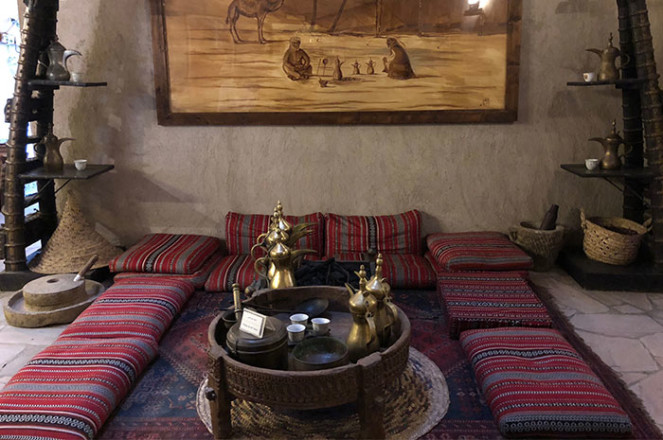
Coffee is loved worldwide and has been part of the culture of the Middle East for many years. The first-ever committed coffee museum in the world welcomes Al Fahidi, the ancient district of Dubai. In the back street of the village is Dubai Coffee Museum. The central courtyard home from the museum donation shop opens with a labyrinth with small rooms and Majlis of exciting objects. The gate to the general public remains open to the museum.
Not only regional but international coffee history is seen in the city. The original beginning of the museum concluded with a little drinking and the development of objects. The museum’s lower level is currently split into rising interest in traffic according to similar coffee beverage traditions. Ethiopia is a whole topic of the courtyard, where traditional Ethiopian methods are shared among the people to experience the coffee roasting beans. One of the draws is the Egyptian baristas, too. There is also an Emirati-like majlis in the coffee museum. There are small display rooms of items and antiquities in the courtyard.
Museum Layout
This coffee lovers’ heaven stretches over two floors with many rooms devoted to coffees, foreign antiquities, Majlis, antiques from Middle Eastern countries, a supermarket, a library, coffee, and specialty history. The Kaldi legend states that something began hundreds of years ago in the Ethiopian highlands. The story says that when a goat eats unknown berries from a tree and becomes alert all night.
Drivers from the nearby monastery wanted to prepare a stew for drinking using those magically produced berries, seeing the strange reaction on the goat. Still, they also noticed that it allowed them to be awake for long hours of meditation. This discovery began to rise quickly, and the Arabs brought this drink, coffee, worldwide. They landed on the Arab peninsula.
Coffee Culture
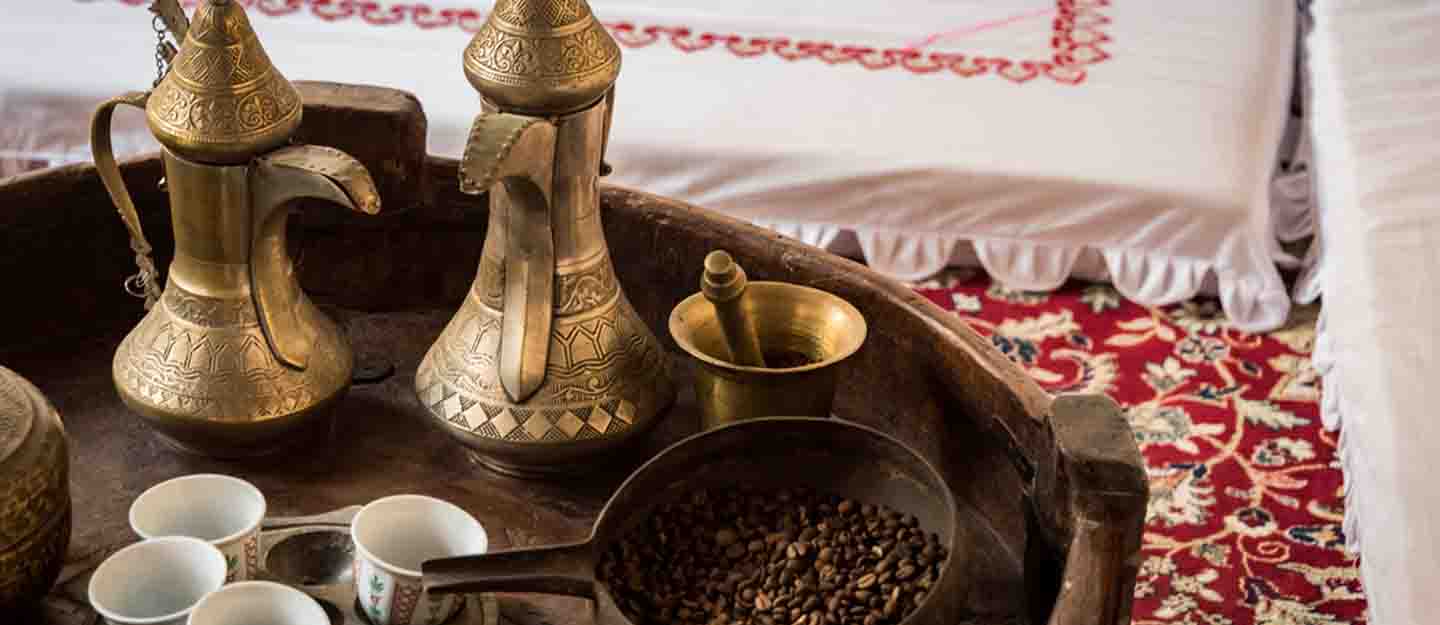
At the Coffee Museum in Dubai, one of the first things to understand and sample various forms of coffee. Visitors may encounter numerous cultivations of coffee, such as Egyptian, Ethiopian and Arabic. The museum has information from the legend of Kaldi, a shepherd known for his first-ever coffee bean discovery and the long path of coffee to the Middle East in the Ethiopian mountains. Fascinatingly antique cups and utensils used for making, cleaning, and drinking coffee can also be seen by visitors to the museum.
In addition to foreign antiques, the first coffee maker to arrive from Japan in the United Arab Emirates, coffee roasting and brewing facilities from various locations worldwide, and the period is recalled many times. You can also taste some coffee from the Ethiopian ritual in the museum corner. Tourists sit on the stools and wait for their bowls to be loaded with coffee supplies. Popcorn is also eaten, which is a tradition in Ethiopia.
Equipment at Coffee Museum Dubai
Does everyone want to know about What is inside illusions Coffee Museum Dubai?
The museum has an apparatus to reinterpret the equipment used in Egyptian palaces, where the drink is loaded onto a hot plate with sand in containers. The museum director purchases massive amounts of coffee from Greece and distributes these machines to and from the UAE. Coffee surprises fill the museum. The Arab desert landscape with camels, mountains, palms, and Bedouins sitting on the terrain brassy with coffee is seen in a large photo in one of the central rooms. The coffee was made in the drawing. Mulla said it was eight months before the artist finished the project.
Antiques and Majlis at Museum

The Majlis and the Middle East Ancient Galleries are housed on the museum’s ground floor. The Majlis, carefully restored, gives an impression of coffee’s classic Emirati theme. You will witness Emirati culture and hospitality on the café table with old coffee cups and other utensils. More coffee-related products can be found on the Middle Eastern Antique Display in the UAE. Antique coffee grinding machines and torches, bowls, kettles, weighting machines, sorters, and coffee memorabilia are visible here. The room is full of pillows and carpets, called the Majlis room, where you must be Barfoot in the rite of Arab coffee.
Location and Timings
You will learn about the roots of coffee at the Dubai Coffee Museum in the Al Fahidi Historical Neighborhood of Bur Dubai in a cozy location of Dubai’s heritage hubs. Bastakiya, Villa 44, Al Hisn Lane, Al Fahidi, Dubaí Coffee Museum. Regarding the coffee museum Dubai Timings, the museum is open from Saturday to Thursday from 9:00 a.m. to 5:00 p.m. On Fridays, the museum is closed. You can call us at +971 4 353 8776 or +971 4 353 8666 if you have questions about the museum.
Coffee Crew Bar at Museum
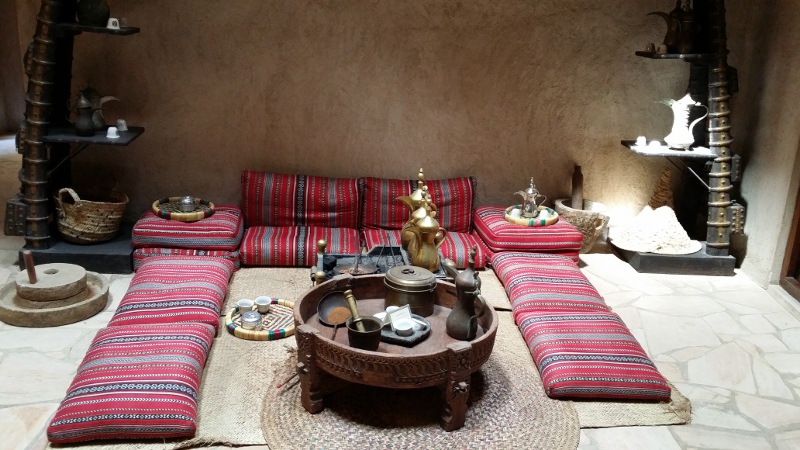
There is a coffee brew bar on the first floor at the Dubai coffee museum, furnished with things of the bean’s history. It is an excellent surprise that coffee farmers in numerous parts of the world, including Indonesia, Yemen, Jamaica, and countries in Latin America, are hanging on a column cap. The government, which displays the world’s prosperous area and coffee museums, is another good surprise. Coffee, visual shows on the manufacturing process, crops above and below sea level, and others are also available from various countries.
Gift Shop at Coffee Museum
A museum gift shop we all love, right? Ok, there’s a great gift shop at Dubai Coffee Museum. Here you can take your hands back home with these sorely needed souvenirs. You can pick up your friends and loved ones’ great presents from this shop. The store is packed with barista services, latte arts plums, roasting methods with recipes, and some good coffee beans to be consumed.
Kids Corner and Coffee Library
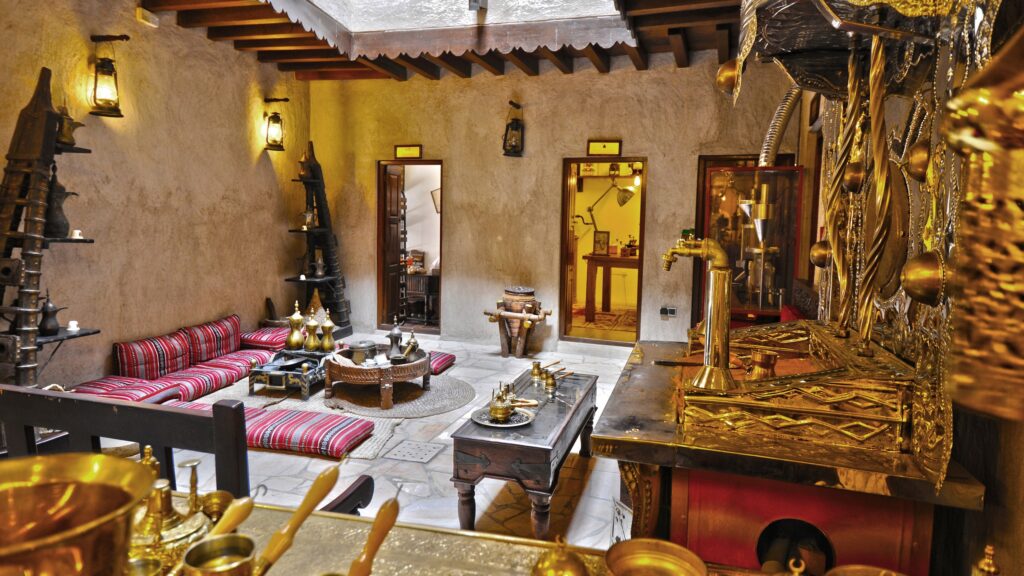
A small yet fascinating collection of coffee books from the 18th century can be found on the museum’s first floor. These books are made accessible through the personal library of the coffee maker who wants to learn about the popular brew. There are also a few audio-visual tutorials worth a look at. The Children’s Corner at the Coffee Museum is a lovely spot where children can learn the history of coffee and many other exciting events.
Conclusion
It has been concluded that coffee has played an essential role in Arabic history, and the Dubai Coffee Museum showcases just why. The museum is situated in the old quarter of Al Fahidi, concealed amid many other treasures inside the narrow streets of the historic neighborhood. The Coffee Museum Dubai is now exhibiting worldwide coffee culture and Arabic traditions. Coffee grinders, historical details for coffee, and antique brewing pans, used during the First World War are only a handful of the items on display. Regarding the coffee museum Dubai Entrance, the entry is open, and the museum store is also on the ground floor. If you are a tourist visiting Dubai for the first time, read in detail about things to do in Dubai.

